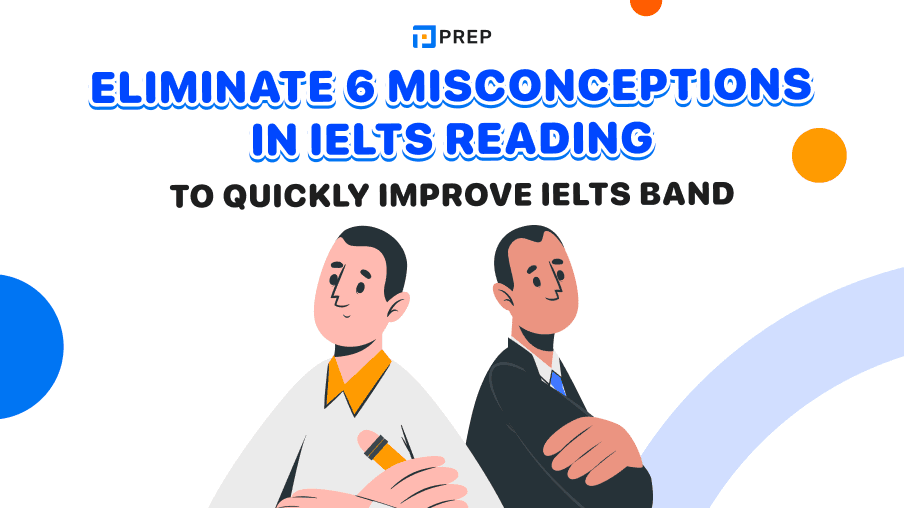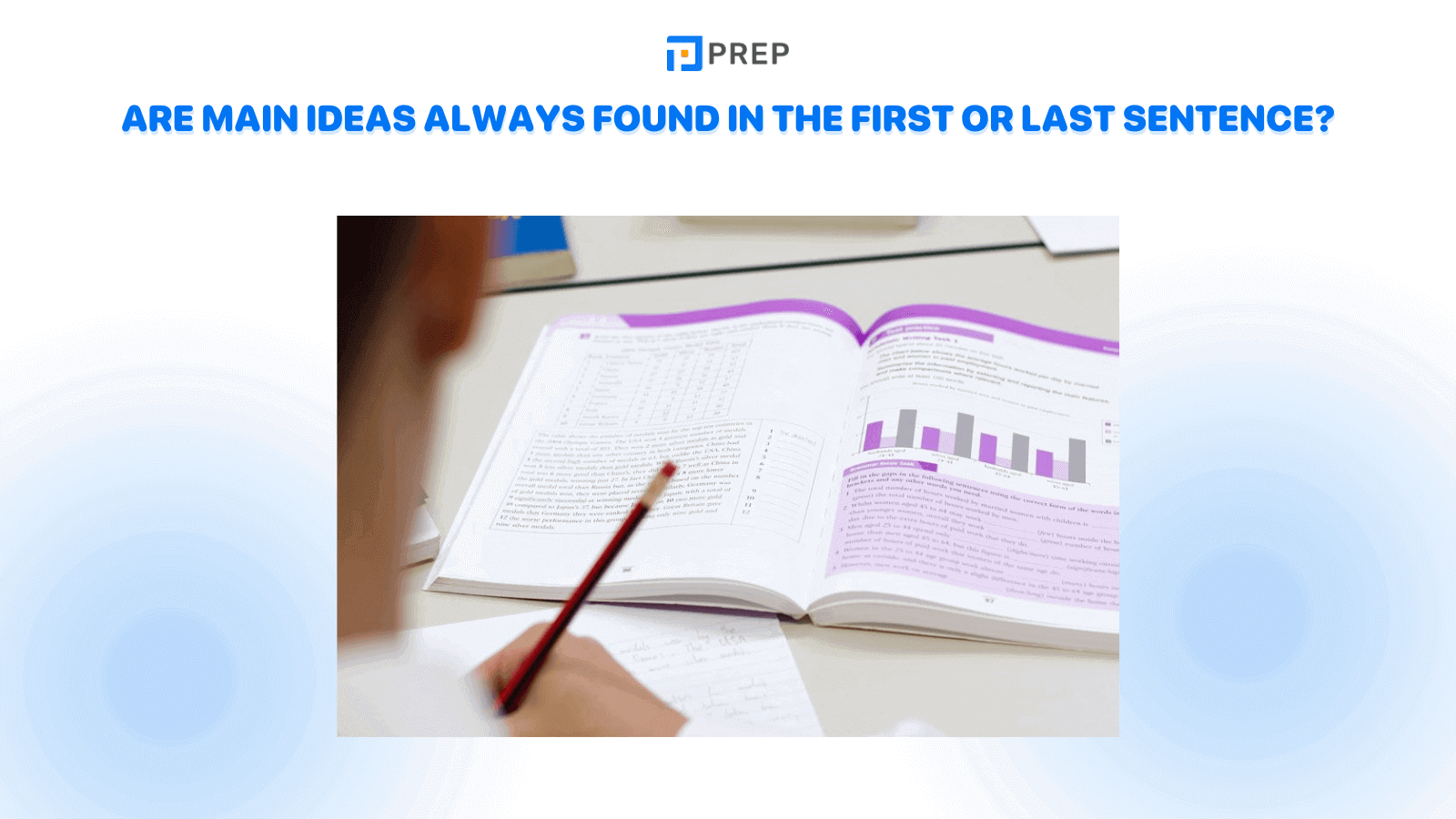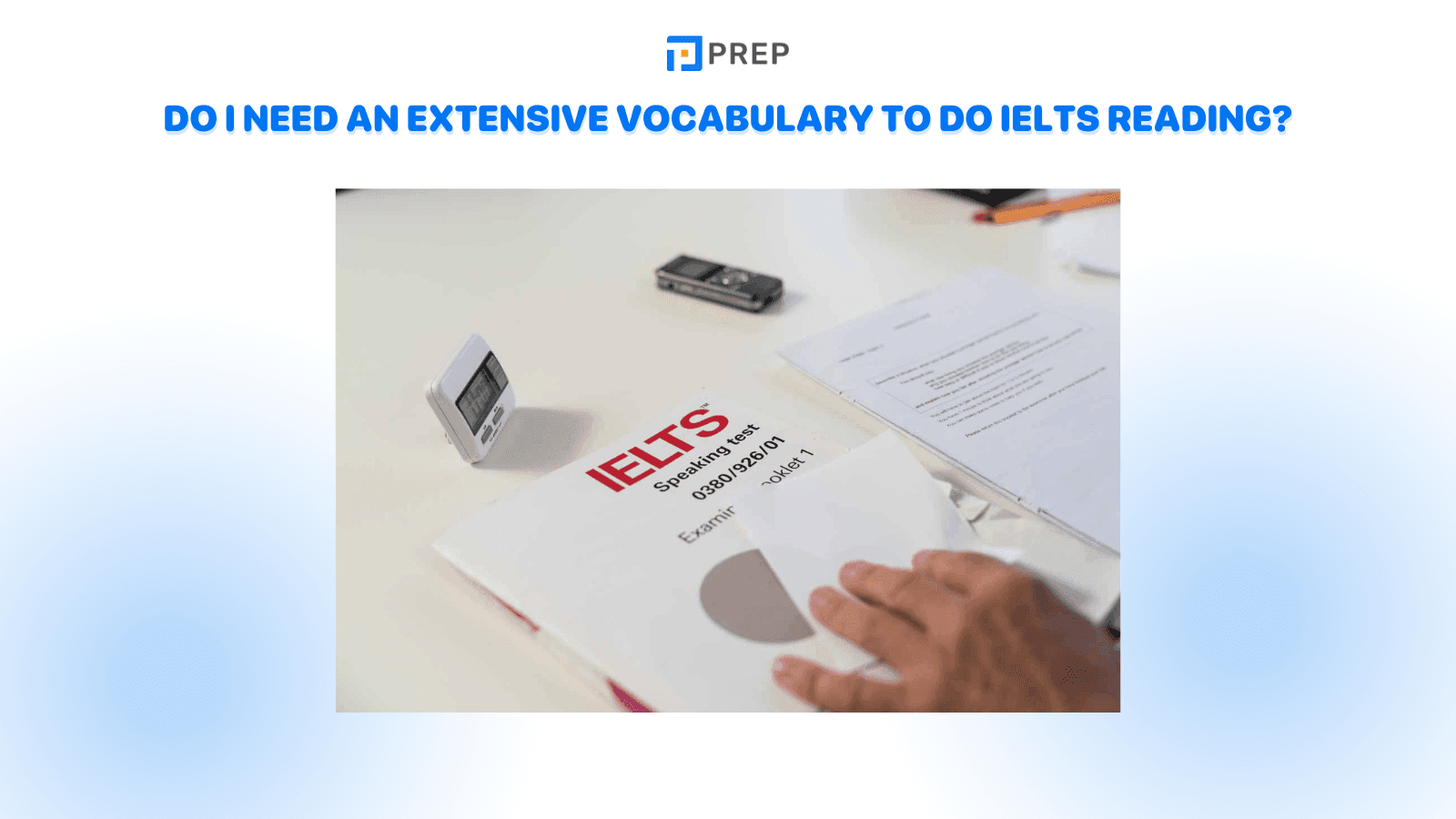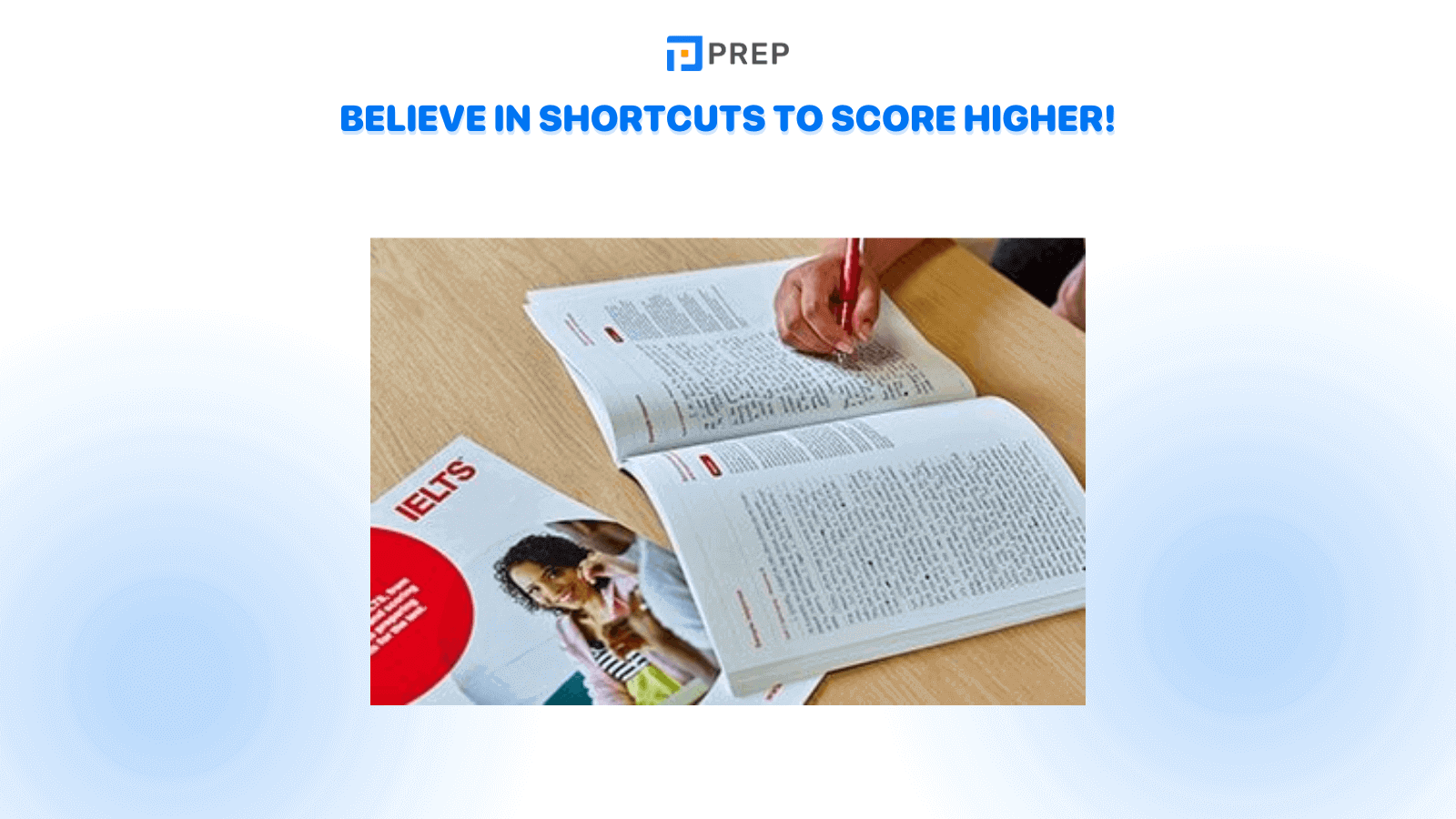Search blog
Eliminate 6 Misconceptions in IELTS Reading to Quickly Improve IELTS Band
To achieve the "dream" band score in the IELTS exam, you need to have a solid grasp of a relatively wide range of knowledge. However, even if you possess a vast amount of knowledge, failing to pay attention to minor details during the test will cause you to lose points regrettably. In the following article, Prep will guide you through 6 misconceptions in IELTS Reading and how to overcome them to avoid unfair point deductions in this exam.

- 1. Should I do Passage 1 first and Passage 3 last?
- 2. Do I need to read the entire passage to understand its main idea?
- 3. Are main ideas always found in the first or last sentence?
- 4. Do I need an extensive vocabulary to do IELTS Reading?
- 5. Believe in shortcuts to score higher!
- 6. The more practice tests you do, the higher your score
1. Should I do Passage 1 first and Passage 3 last?
One of the most common misconceptions in IELTS Reading is that many students believe Passage 1 is the easiest, while Passage 3 is the most difficult. This leads to the mindset of allocating 10 minutes for Passage 1 and spending up to 30 minutes on Passage 3.
This is one of the most regrettable misconceptions in IELTS Reading because the difficulty of a reading passage depends more on the complexity of the vocabulary rather than their order. For example, a reading passage may be considered difficult and challenging for Band 6 if it includes vocabulary at the C1 level or higher. Conversely, if the majority of the vocabulary difficulty is at the B2 level, it will be more suitable for you.

2. Do I need to read the entire passage to understand its main idea?
One of the widespread misconceptions in IELTS Reading is the notion that comprehending the main idea requires reading the passage in its entirety. Yet, attempting to read every word leads to a shortage of time, and harboring this incorrect assumption guarantees that completing all the questions within the 60-minute limit becomes impossible. This approach also adds considerable stress in the exam environment.
Instead of reading the entire passage thoroughly, skim through it to grasp the main idea of the paragraph. Then, search for the correct section containing the relevant information for the answer and read that part carefully (using the Skimming & Scanning technique).

3. Are main ideas always found in the first or last sentence?
Many students wonder, "Even if I read the first and last sentences of the paragraph, why do I still choose the wrong main idea?" This is a "harmful" misconception in IELTS Reading. Many candidates believe that the main idea always lies in the first or last sentence of the paragraph. However, this is only true in a few cases. Sometimes, you still need to read the second sentence or even skim through the entire passage to accurately grasp the main idea.
This misconception in IELTS Reading, although small, can lead to serious consequences when dealing with various types of questions about main ideas, such as Multiple Choice Questions (MCQs), Matching Headings, Summary Completion, etc., which account for at least 1/4 of the total score.

4. Do I need an extensive vocabulary to do IELTS Reading?
Many students mistakenly believe that they need a massive vocabulary of around 2,000 to 3,000 words to do IELTS Reading. However, this is one of the misconceptions in IELTS Reading that is not necessary.
In reality, achieving Band 6 only requires candidates to have a certain vocabulary to skim and scan effectively. The truth is, even native speakers sometimes do not know the meanings of all words. Instead of cramming advanced vocabulary, use the skill of guessing word meanings based on the context within the sentence or the passage. This skill will save you a lot of time when encountering difficult words or reading passages in unfamiliar topics.

5. Believe in shortcuts to score higher!
One of the most popular misconceptions in IELTS Reading is believing in "instant" methods. They give us the illusion of easier knowledge, requiring less study, but in reality, they don't lead to achieving high scores as desired in the actual exam.
Simply because the IELTS Reading test is always meticulously designed to minimize the possibility of candidates using tricks or shortcuts. If you don't have substantial knowledge combined with regular practice, learning tips and tricks will never be effective. That's why it's called "reading comprehension" and not "reading tricks," right?
The advice for you is instead of wandering around the internet and being distracted by inaccurate sources, spend time referring to reputable and reliable sources like Cambridge, Collins, Barron's, etc. These sources are regularly updated and improved to best fit the new test format, and they are also compiled by many famous authors with extensive experience. What source can be more trustworthy than the creator of IELTS itself - Cambridge, right, Preppies?

6. The more practice tests you do, the higher your score
The final misconception in doing IELTS Reading is also a puzzling misconception for IELTS Reading test takers. It is the belief that diligently working on and doing numerous practice tests day and night will eventually increase their band score. So where does the real problem lie?
Most students focus on completing as many practice tests as possible, some even set a goal of doing 10 Reading tests in a day, hoping that their band score will gradually increase. However, they forget that doing many tests is good, but what they learn from each test is what really matters.
Instead of being excited about doing a new test, checking the answers, and getting the score, be persistent in redoing a test and analyzing the mistakes to find ways to improve. Success only comes to those who are diligent, and if you want to increase your band score, this is the only way. You don't need to do too many tests, just do enough and deeply understand the core knowledge, identify mistakes, and effectively know how to fix them.

This article has provided the six most harmful misconceptions in IELTS Reading that keep your band score stagnant. Hopefully, through the shared information above, you will gain experience in practicing Reading tests at home and conquer high band scores in the actual IELTS exam!

Comment
Search blog
Đăng ký tư vấn lộ trình học
Bạn hãy để lại thông tin, Prep sẽ liên hệ tư vấn cho mình ngay nha!
